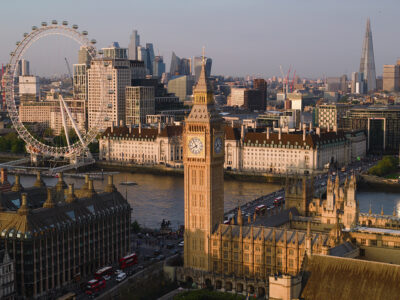There are “historic opportunities” for greater openness in economies across the Middle East and North Africa (MENA) that could see a major boost to economic growth and living standards in the medium term, the World Bank has said.
According to the World Bank’s new regional outlook, it said the current unrest was translating to lower growth in the short term but also offered opportunities.
While the World Bank cut its growth forecast for the region to 3.6 percent for 2011 down from five percent, it added that the medium term offered “new hope for an inclusive and sustainable development that has not before been seen in the region”.
Shamshad Akhtar, World Bank vice president for the MENA region, said: “The rich experience from countries that have undergone political changes suggest that short-term disruptions to economic growth and social tensions are inevitable.
“However, transition offers an opportunity for countries to break with the past and set course in a newer direction. A first order of priority is to offer the right signals to restore public and private investor confidence which, in MENA, calls for ensuring respect and citizen dignity through inclusive social policies, a fundamental change in governance frameworks and swiftly restoring macroeconomic stability.”
The report found that by the end of 2010, MENA countries had largely recovered from the global financial crisis, and growth rates had been expected to reach pre-crisis levels in 2011.
Events in early 2011 which led to swift regime change in Tunisia and Egypt, and ongoing challenges in Bahrain, Libya, Syria and Yemen, have affected the short-term macroeconomic outlook and the status and speed of economic reforms in the region.
“The effects of reform tend to follow a J-curve, where things get worse before they get better. Experience from other countries which have made successful transitions has shown an initial decline of 3-4 percent in the first year but quickly recovering,” added Caroline Freund, chief economist for the MENA region.
Freund said examples of transitions to democracy in other parts of the world confirm that economic gains can be sizable.
The report’s regional forecast of 3.6 percent growth for 2011, down from five percent expected a few months ago, was largely due to the sharp drop in Egypt’s and Tunisia’s economic activity, but also because of weaker growth in developing oil exporters.
Gulf Cooperation Council (GCC) countries will maintain strong growth rates, expected to exceed five percent, the report added.
The World Bank also said it expected government spending in the region to rise in 2011 as they try to reduce the burden of unemployment and counter high commodity prices.
“Partly because of these actions, but also because of rising fuel and food prices, inflation rates are expected to increase in many MENA countries in 2011,” the report added.
It considered “prolonged instability resulting from unmet political and social aspirations and lack of clarity about political transitions” to be the most serious risk to short-term economic growth in MENA.
The report also said food security would continue to be an important issue for Arab countries.
Julian Lampietti, lead food security expert for MENA region at the World Bank, said: “Now is not the time to be complacent in addressing this with global wheat stocks low and with the Arab world importing one third of the world’s traded wheat.”
He said there was “considerable scope” for reducing food price volatility in the MENA region through investments in infrastructure and logistics.





